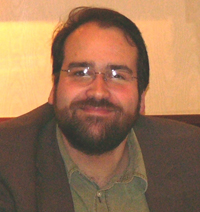Thanks to the work of lobbyists, marketing research-related payments are explicitly excluded from Sunshine legislation enacted Tuesday as part of the healthcare overhaul. But the exclusion may not always apply.
Existing reporting rules and gift bans such as one in the District of Columbia may not be preempted by the federal law. Nor are state legislatures, such as those in Connecticut and Colorado, preempted from passing new reporting schemes similar to the federal Sunshine law.
“I’m assuming the majority of states will follow [the federal] model. There’s no need for them to push forward in doing something,” said Howard Fienberg, director of government affairs for the Marketing Research Association (MRA), one of the groups which lobbied for the federal exclusion. “But there are states with existing laws that are going to fight tooth and nail to keep what they have.”
The Physician Payments Sunshine Act appearing in the sweeping Senate healthcare bill excludes from its reporting rule incentive payments for doctors who participate in marketing-research projects, like focus groups and surveys, as long as the research is conducted by an independent firm and the physician’s identity is withheld from the sponsor.
But it’s uncertain whether the new act trumps local measures. With preemption in play, states have become legislative battlegrounds. Basically, any state law that involves a reporting requirement is a concern for the survey research profession because of the requirement to release confidential data such as the physician’s name.
In Minnesota, a lobbying team including the MRA, Pharmaceutical Marketing Research Group (PMRG) and others recently persuaded the Minnesota Board of Pharmacy, which oversees that state’s physician gift-reporting law, to clarify that it does not consider payments to physicians illegal, as long as the payment compensates the doctor “in connection with a genuine research project.”
As to whether companies are still subject to the state’s reporting requirement, Cody Wiberg, executive director of the Minnesota Board of Pharmacy, further clarified in an email to MM&M that, “Since the pharmaceutical manufacturers don’t even know which physicians have been recruited, and since they are not making direct payments to physicians, they do not have to report the money they pay.”
Massachusetts is another existing reporting state where the lobbyists succeeded in ensuring that incentives can still be offered to doctors as a thank-you for participating in research. In Colorado, where the state legislature is attempting to push through a reporting law very similar to the sunshine act, MRA obtained exemption language there, too.
Fienberg said a Colorado state senator told him: “‘If [the marketing-research exemption] was good enough for Chuck Grassley, it’s not bad.’ She was convinced there was merit to our position.”
Not everyone may be willing to cede ground. In Connecticut, attorney general Richard Blumenthal is advancing a reporting bill. Vermont’s gift ban, as well as aggregate-reporting requirements in place in West Virginia and Maine, could pose additional threats.
Lobbyists for the profession say their most pressing concern is the District of Columbia, where a reporting scheme explicitly includes market-research payments. The district includes three university medical centers, so the healthcare community there is an important one and needs to be represented, said Rick Seale, VP of field operations for Maryland-based Shugoll Research.
The DC law “hasn’t impacted us greatly, but I don’t want it to limit our ability to reach out to physicians in the district,” Seale said.
He and Fienberg have met with the committee director for the Washington, DC, Committee on Health to try to change the law. “If we can get their ear, get them the language of the exclusion, make them understand the reasoning, I think we stand a chance,” Seale said.
The director “suggested we rewrite the language to exclude marketing research, but we haven’t been able to push past that point to get them to consider bringing up an exemption,” he said. “It’s been a tough nut to crack, to be honest. Their stand is, if you have nothing to hide, why not report it.”
Lobbyists have a good answer for that. Confidentiality is important to physicians and is also cited as a reason why survey research should be exempt from reporting schemes, which are designed to prevent marketing bias from creeping into the medical profession. If neither client nor participant knows each other’s name, lobbyists argue, the research cannot be said to be exerting undue influence.
Manufacturers don’t like reporting laws, either, because of the administrative hassle, and a legislative gray zone is a red flag. “Any time [the state law] might include research incentives, the pharmaceutical or device companies don’t do business there,” Fienberg said.
That’s why a public-reporting requirement could have “devastated the research profession in this country,” he said. So the priority has been winning exemptions from states.
Market researchers will continue lobbying and grassroots campaigning where existing laws could dissuade pharmaceutical and device firms from conducting research projects or where state legislatures are looking to develop the next piece of model legislation.
The federal law that passed this week should help. “We’ve been trying to work toward it for a while,” said Fienberg. “Hopefully this will give us more ammunition and forestall potential new laws folks are considering.”







